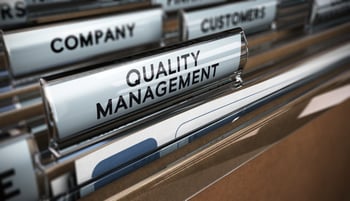6 How Does the Six Sigma Methodology Compare With the Continuous Improvement Methodology
Many different strategies have been developed to help organizations in their continuous professional development improvement efforts, some of which you may or may not be familiar with. LEAN, Six Sigma, and Quality are three of the most accepted and widely used frameworks in today's business environment. Here, we'll give you a brief overview of exactly why continuous improvement matters. We'll also outline the key differences between LEAN, Six Sigma, and Quality so you'll have a better idea of what strategies would be most helpful in your business. Let's get started: One of the most important things for both your business and your customers is maintaining a consistent level of quality in regards to your products or services. By constantly improving certain quality processes, it allows you to constantly manage the quality of your offerings according to new, and continuously changing, industry standards. Continuous quality improvement departments and professionals typically focus on achieving maximum customer satisfaction while minimizing cost , delivering quality products by improving processes, and setting up global quality management systems. All these things matter because, as your competition gets stiffer and customer expectations are raised, you'll need to have the systems and infrastructure in place to keep pace. Basic concepts of Quality and Quality Process Management within an organization cover quite a few different areas. The main concept is to create a culture of quality within the organization as well as developing executive quality strategies and initiatives. One of the main ways quality management achieves this is through the auditing process by assessing the current state of processes and supply chains. Risk management is another key element to quality management in terms of reducing changing costs and assessing the cost-benefit of potential process improvements. The LEAN system was developed primarily for manufacturing, and is a series of techniques and activities for efficiently running an operation. The specific techniques will obviously differ according to the situation, but contain the same underlying principle, which is the elimination of any non-value-adding or wasteful activities from all business processes. Types of waste that LEAN typically seeks to eliminate is overproduction, waiting time, transportation, inventory, motion, and the costs of quality. Six Sigma differs from LEAN in that in many organizations it simply means a measure of quality that strives for near perfection. Six Sigma is a highly disciplined, data-driven approach and methodology with a focus on elimination of defects. In fact, the name derives from the goal of driving towards six standard deviations between the mean and the nearest specification limit in any process. Unlike LEAN, this can be any process from manufacturing to a transaction of either a product or service. Six Sigma also provides a statistical representation of how a process is quantitatively performing. To achieve the optimal Six Sigma standard, a process must not produce more than 3.4 defects per million opportunities — a defect being defined as anything outside of customer specifications. The Six Sigma "belt" certifications are common in process improvement professionals and indicate a high level of competency in this approach. By now you should have a good idea of why continuous process is a must for your business or career, and the different frameworks you'll be able to put to work towards that end. What are some processes in your business you're trying to improve? Any tips or strategies to share? Let us know in the comments!  One of the most influential philosophies in business over the past half-century has been the concept of continuous improvement. Businesses and professionals are now constantly striving for ways to constantly improve quality standards, no matter how high they may already be.
One of the most influential philosophies in business over the past half-century has been the concept of continuous improvement. Businesses and professionals are now constantly striving for ways to constantly improve quality standards, no matter how high they may already be. Why Does Continuous Improvement Matter?
1. What Is Quality?
2. What Is LEAN?
3. What Is Six Sigma?



Topics: Professional Development, Operations
Source: https://climb.pcc.edu/blog/lean-six-sigma-quality-continuous-process-improvement-models
0 Response to "6 How Does the Six Sigma Methodology Compare With the Continuous Improvement Methodology"
Post a Comment